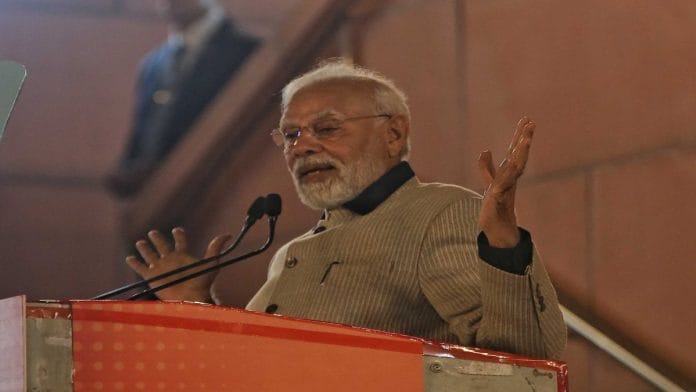Just as the Indian economy was beginning to limp back to normality and people had started disposing of their unused stock of masks and sanitisers, the news of the possible return of the Covid pandemic has hit the headlines. India’s track record of handling the coronavirus and vaccination programme was lauded by many foreign governments and international agencies. Truly, the Cowin portal was one of the finest and remarkable technologies that not only provided the pathway for mass vaccination but also kept up to date early records and made it available to millions with just a few clicks on their computers or mobiles.
As for lockdown and containment of Covid-19 was concerned, both the government and the people were on the same page and fought the battle against the pandemic with minimum collateral damage. The loss of lives was an unfortunate reality which none can deny or overlook. Yet, picking up the loose ends and returning to normality in private and institutional lives was quick.
The news of the Omicron variant BF.7 wreaking havoc in some Chinese cities has revived the nightmare of the past. The share market in India slipped as news of the troubled Chinese economy trickled in. Fear of the resurgence of the pandemic and apprehensions of subsequent lockdown can scare the investors, besides wilting the green shoots in the economy. While panic in the market is a serious matter, it is certainly not as serious as the panic among the people. During the thick of the pandemic, people rushed for oxygen cylinders resulting in hoarding and acute shortage driven by fear and greed. Misinformation and rumours are probably greater health hazards than even the virus itself.
According to initial information on the new variants, the virulence of the virus seems to be comparatively less and the affliction does not appear to be fatal in many cases. Yet the government needs to be vigilant and carry the people with it while dealing with the new situation.
Also read: India needs to innovate in filling vacant hospital posts. Building new AIIMS alone won’t cut it
What the govt needs to do
To start with, the central government should create multiple layers of systems to communicate with the people and disseminate information about the new variant to people. This will enable the authorities to deal with medical emergencies without having to face a panic rush to hospitals. Lack of dedicated hospitals and medicines and oxygen were reasons for many avoidable deaths during the last phases of the Covid-19.
Several makeshift Covid-treatment hospitals were set up and all of them did a remarkable job of tackling the situation. But during this period normal health emergencies were postponed or rescheduled probably never to be attended to. The disruption in the normal healthcare system was observed in many countries, India being no exception.
Having learned a bitter lesson, some private hospitals are preparing to open dedicated wards to treat pandemic cases. But the central government should step in and create more facilities to deal with emergency situations. Use of appropriate technologies, non-contact management of administering treatment and attending to the physical and psychological trauma are areas that the government should address immediately.
Health care is as much a state subject as it is a central subject and also involves private entities to a very large extent. The Union health ministry has issued an advisory regarding the pandemic. It can also set up an all-party supervisory committee to oversee the preparedness. The Centre has asked the Congress to stop the Bharat Jodo Yatra if it fails to observe Covid protocols. Unfortunately, the Congress is seeing it as a political ploy by the BJP to stop the Yatra and rob the party of the popularity it has derived so far. An all-party committee could probably tackle the sensitive issue and insulate it from political rivalry. Tackling pandemic is a serious issue and should best be left to experts rather than handled by politicians.
Another area that needs immediate attention is the production of vaccines and appropriate medicines and treatment methodologies to prevent the spread of the virus and treat those afflicted by it. During the Covid-19 pandemic, the government brought in the PLI scheme in July 2020 to facilitate production of Active Pharmaceutical Ingredients (API) and reduce dependence on China, which is far ahead of India in API production. The government cannot distance itself from the lack of indigenous production of API by limiting itself to announcing a PLI scheme. By now, the concerned ministries should have gone into the details of the industries that were given approvals and sorted out the roadblocks. On their part, the industries have a huge responsibility to apprise the government of their problems and assist in formulating industry friendly policies, including infrastructure of international standards, availability of capital and consumer-friendly pricing mechanism.
The pandemic does not wait for the people, governments and the industry to prepare and become “pandemic-proof”. It will sneak in with festivals, gatherings and new year revelries. Preparedness, prevention and caution are the key words. In the cacophony of allegations and counter allegations, it’s the people who will feel let down.
Seshadri Chari is the former editor of ‘Organiser’. He tweets @seshadrichari. Views are personal.
(Edited by Prashant)






